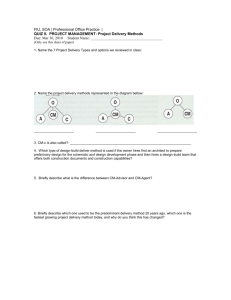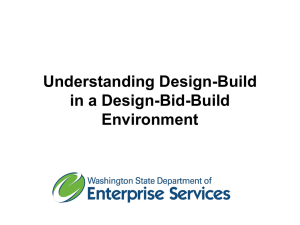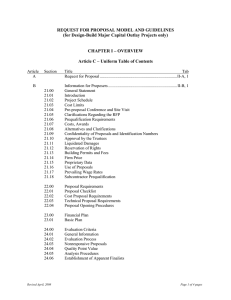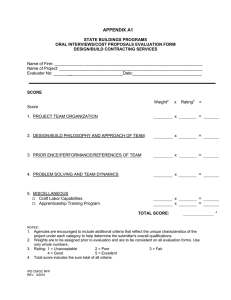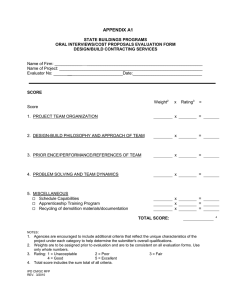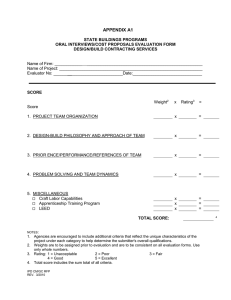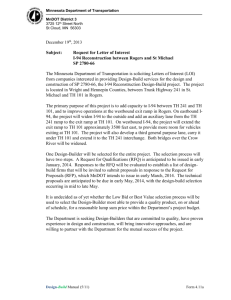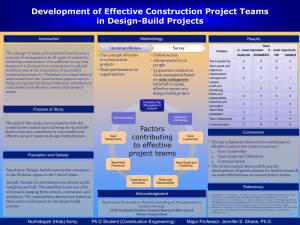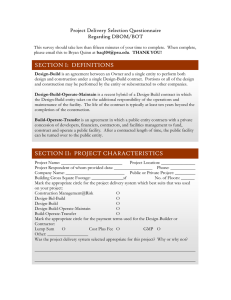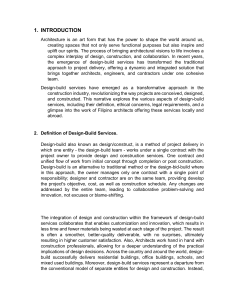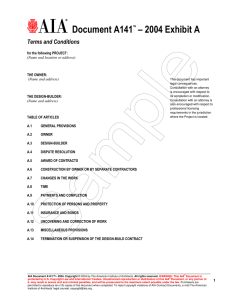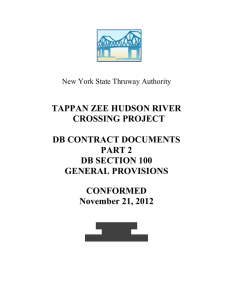Why Should I Choose Design-Build Construction?
advertisement
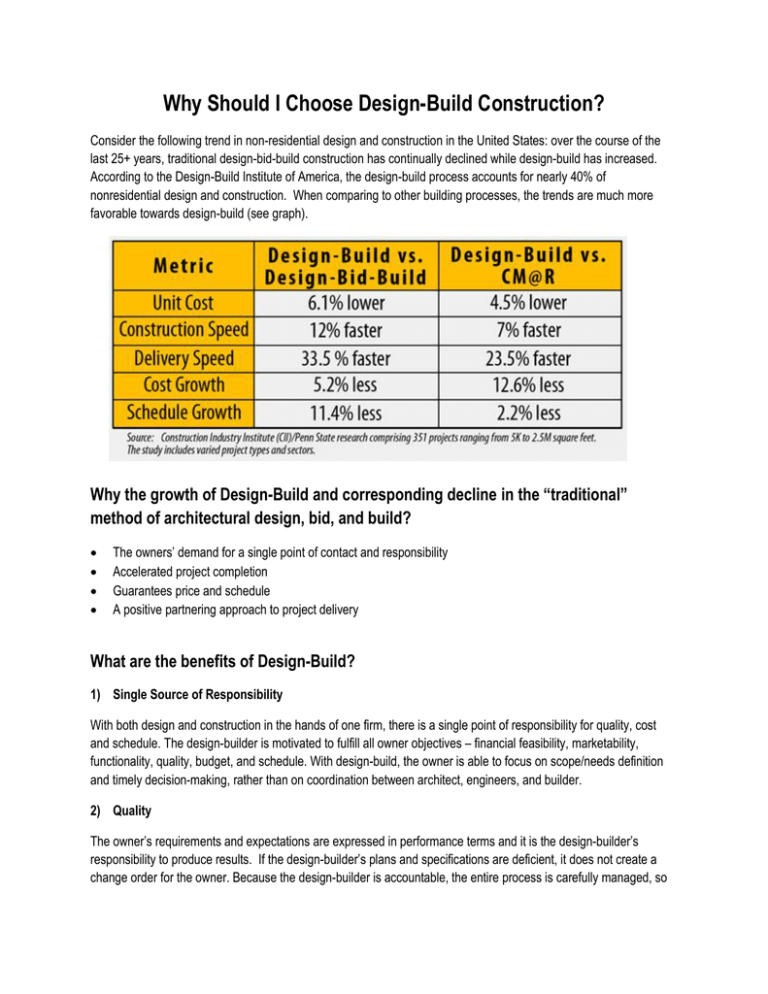
Why Should I Choose Design-Build Construction? Consider the following trend in non-residential design and construction in the United States: over the course of the last 25+ years, traditional design-bid-build construction has continually declined while design-build has increased. According to the Design-Build Institute of America, the design-build process accounts for nearly 40% of nonresidential design and construction. When comparing to other building processes, the trends are much more favorable towards design-build (see graph). Why the growth of Design-Build and corresponding decline in the “traditional” method of architectural design, bid, and build? The owners’ demand for a single point of contact and responsibility Accelerated project completion Guarantees price and schedule A positive partnering approach to project delivery What are the benefits of Design-Build? 1) Single Source of Responsibility With both design and construction in the hands of one firm, there is a single point of responsibility for quality, cost and schedule. The design-builder is motivated to fulfill all owner objectives – financial feasibility, marketability, functionality, quality, budget, and schedule. With design-build, the owner is able to focus on scope/needs definition and timely decision-making, rather than on coordination between architect, engineers, and builder. 2) Quality The owner’s requirements and expectations are expressed in performance terms and it is the design-builder’s responsibility to produce results. If the design-builder’s plans and specifications are deficient, it does not create a change order for the owner. Because the design-builder is accountable, the entire process is carefully managed, so no misunderstandings occur. If there is a performance issue, the design-builder must take responsibility. That responsibility is a powerful motivator to deliver quality. 3) Cost Savings Ninety percent (90%) of project success is determined in the planning or feasibility phase, when project scope and layout is being determined by the owner and design-build team. The design-builder brings architecture, engineering, cost estimating, scheduling, and construction expertise to the owner’s team at the earliest stages of a project, charting the course for success. 4) Time Savings With design-build, construction can begin prior to the completion of the plans and specifications, without risk to the owner. Materials are ordered early in the process, enabling construction time to be minimized. Competitive bidding can be phased, so cost controls are maintained. 5) Early Knowledge of Firm Costs It does not require a significant investment by the owner to get a firm cost from the design-builder. Cost information is developed in parallel with the preliminary design, and once the costs are established, the project team guides the design within the budget constraints. 6) Teamwork You should expect your new facility to change your business world. Everyone’s perspective must be valued in the design and construction process for the owner’s ultimate goals to be met. The design­builder’s team meets with your business leaders, departmental and facility managers to deliver outstanding project results.
